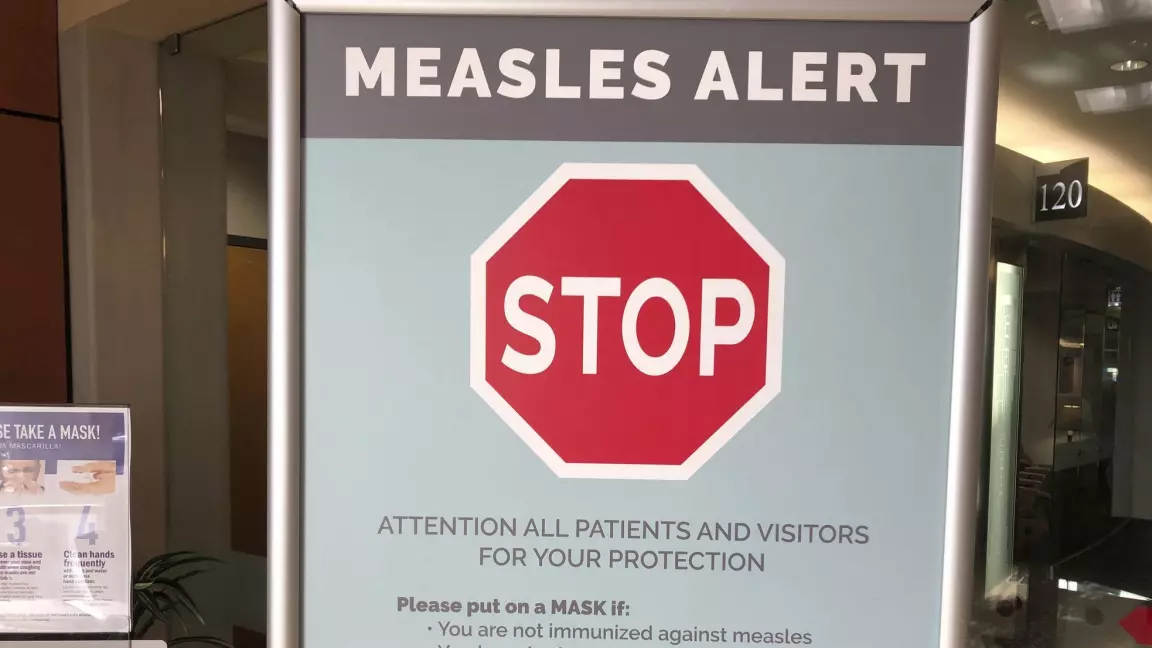Health
Arm Yourself Against the 2022-23 Flu Season – Newswise

Newswise — LOS ANGELES (Sept. 28, 2022) — Amid the loosening of COVID-19 precautions and a sharp increase in flu cases in the Southern Hemisphere, Cedars-Sinai experts are warning the public to prepare for a bad flu season this year.
“Australia and New Zealand had their most severe flu season in five years,” said infectious disease specialist Soniya Gandhi, MD, associate chief medical officer at Cedars-Sinai. “We tend to see similar influenza patterns in the Northern Hemisphere, and while there is no guarantee that this will happen, it really highlights the importance of getting the flu shot this year.”
While people observed COVID-19 pandemic safety measures—like wearing face masks and washing hands frequently—during the past two years, the flu all but disappeared in the U.S. But this year could be different, as mask mandates have lifted, and more people are getting back to socializing.
“People are tired of respiratory viruses, and they’re trying to resume normal lives,” said infectious disease specialist Kimberly Shriner, MD, at Huntington Health, an affiliate of Cedars-Sinai. “I worry that since COVID-19 is beginning to settle down a little, there may be an impression that influenza will as well.”
Shriner and Gandhi spoke with the Cedars-Sinai Newsroom about what this flu season might bring and why it’s wise to be prepared and get a flu shot.
What concerns you about the current flu season in the Southern Hemisphere?
Australia has a robust flu-tracking system, and their flu season, which runs from April to October, offers clues as to what’s in store for the U.S.
The flu wasn’t only severe in Australia this year—it came on fast.
“Influenza started circulating two months earlier than normal, and the largest number of cases were in children ages 5 to 9,” Gandhi said. “This really emphasizes that even young people should be getting their flu shot.”
The silver lining? Australia saw lots of influenza A (H3N2), a strain that’s included in this year’s vaccine, Gandhi said. While it’s too early to assess the vaccine’s effectiveness in the U.S., she said it’s reassuring to know that this strain of the virus is covered in the current vaccine.
What other factors could affect our upcoming flu season?
“We’ve been very protected these past two years, and we haven’t had an opportunity for the flu virus to circulate widely,” Shriner said. “But now, the masks are off.”
Because people were more isolated in recent years, immunity to the flu in the population declined. The combination of reduced immunity and relaxed safety measures means the public will be doubly vulnerable to a circulating respiratory virus.
“When you throw all of that into the mix, it’s not surprising that we may have the worst flu season we’ve seen in a while,” Gandhi said.
Why should people take the flu seriously?
Influenza is a serious illness, especially for the elderly and those who are immunocompromised, like cancer or transplant patients.
“The flu can kill up to 50,000 people annually, and that certainly is a concern we have about this impending season given our preview of coming attractions in the Southern Hemisphere,” Shriner said.
In the U.S., influenza typically circulates from November through April, coinciding with the winter holidays when people gather indoors, and when COVID-19 tends to surge.
“An influx of hospitalizations from COVID-19 and the flu could stress the healthcare system and impact staffing if many healthcare workers are out sick,” Gandhi said. “It’s yet another reason to get the flu shot and the new Omicron booster as well.”
Why get the flu shot?
The past two years have demonstrated the capacity of vaccines to prevent diseases and save lives. “We’ve seen that dramatically with COVID-19, and I think the same is true of influenza,” Shriner said. “Vaccination often helps the individual, but it also protects those who either cannot receive a vaccine or who won’t respond very well to it.”
By limiting the spread of flu and preventing severe illness, the flu shot also can help maintain hospital capacity, Gandhi said. She cited a recent study of adults that showed the flu vaccine reduced their risk of ICU admission by 26% and death by 31%.
“The flu and COVID-19 vaccines are important on a personal level, and they’re critical from a public health standpoint,” Gandhi said.
Read more on the Cedars-Sinai Blog: What’s the Difference Between a Cold, the Flu and COVID-19?
Health
Quebec successfully pushes back against rise in measles cases – CBC.ca


Quebec appears to be winning its battle against the rising tide of measles after 45 cases were confirmed province-wide this year.
“We’ve had no locally transmitted measles cases since March 25, so that’s good news,” said Dr. Paul Le Guerrier, responsible for immunization for Montreal Public Health.
There are 17 patients with measles in Quebec currently, and the most recent case is somebody who was infected while abroad, he said.
But it was no small task to get to this point.
Le Guerrier said once local transmission was detected, news was spread fast among health centres to ensure proper protocols were followed — such as not letting potentially infected people sit in waiting rooms for hours on end.
Then about 90 staffers were put to work, tracking down those who were in contact with positive cases and are not properly vaccinated. They were given post-exposure prophylaxis, which prevents disease, said Le Guerrier.
From there, a vaccination campaign was launched, especially in daycares, schools and neighbourhoods with low inoculation rates. There was an effort to convince parents to get their children vaccinated.
Vaccination in schools boosted
Some schools, mostly in Montreal, had vaccination rates as low as 30 or 40 per cent.
“Vaccination was well accepted and parents responded well,” said Le Guerrier. “Some schools went from very low to as high as 85 to 90 per cent vaccination coverage.”
But it’s not only children who aren’t properly vaccinated. Le Guerrier said people need two doses after age one to be fully inoculated, and he encouraged people to check their status.
There are all kinds of reasons why people aren’t vaccinated, but it’s only about five per cent who are against immunization, he said. So far, some 10,000 people have been vaccinated against measles province-wide during this campaign, Le Guerrier said.
The next step is to continue pushing for further vaccination, but he said, small outbreaks are likely in the future as measles is spreading abroad and travellers are likely to bring it back with them.
Need to improve vaccination rate, expert says
Dr. Donald Vinh, an infectious diseases specialist from the McGill University Health Centre, said it’s not time to rest on our laurels, but this is a good indication that public health is able to take action quickly and that people are willing to listen to health recommendations.
“We are not seeing new cases or at least the new cases are not exceeding the number of cases that we can handle,” said Vinh.
“So these are all reassuring signs, but I don’t think it’s a sign that we need to become complacent.”
Vinh said there are also signs that the public is lagging in vaccine coverage and it’s important to respond to this with improved education and access. Otherwise, microbes capitalize on our weaknesses, he said.
Getting vaccination coverage up to an adequate level is necessary, Vinh said, or more small outbreaks like this will continue to happen.
“And it’s very possible that we may not be able to get one under control if we don’t react quickly enough,” he said.
Health
Pregnant women in the Black Country urged to get whooping cough vaccine – BBC.com


Pregnant women urged to get whooping cough vaccine
Pregnant women in the Black Country are being urged to get vaccinated against whooping cough after a rise in cases.
The bacterial infection of the lungs spreads very easily and can cause serious problems, especially in babies and young children.
The Black Country Integrated Care Board (ICB) is advising pregnant women between 16 and 32 weeks to contact their GP to get the vaccine so their baby has protection from birth.
The UK Health Security Agency warned earlier this year of a steady decline in uptake of the vaccine in pregnant women and children.
Symptoms of the infection, also known as “100-day cough”, are similar to a cold, with a runny nose and sore throat.
Sally Roberts, chief nursing officer for the ICB, which covers Wolverhampton, Dudley, Walsall and Sandwell, said anyone could catch it, but it was more serious for young children and babies.
“Getting vaccinated while you’re pregnant is highly effective in protecting your baby from developing whooping cough in the first few weeks of their life – ideally from 16 weeks up to 32 weeks of pregnancy,” she said.
“If for any reason you miss having the vaccine, you can still have it up until you go into labour.”
Follow BBC West Midlands on Facebook, X and Instagram. Send your story ideas to: newsonline.westmidlands@bbc.co.uk
Health
Measles cases stabilize in Montreal – CityNews Montreal


The number of measles cases has stabilized, according to the Montreal Public Health.
Since March 25, there have been no contaminations reported within the community.
“Our teams have identified all contact cases of measles,” said media relations advisor Geneviève Paradis. “It’s a laborious task: each measles case produces hundreds of contacts.”
All community transmission cases since February 2024 have been caused by returning travelers who were either unvaccinated or partially vaccinated.
Currently, there are 18 measles cases in Montreal – with 46 total in Quebec. This according to the April 18 figures from the provincial government.
“With the summer vacations approaching, if you’re travelling, it is essential to check if you are protected against measles,” explained Paradis.
According to Montreal Public Health, a person needs to have received two doses after the age of 12 months to be immunized against the virus.
They’ve launched a vaccination campaign throughout the region, and currently, 11,341 people have been vaccinated against measles in Montreal between March 19 and April 15.
Vaccination is also being provided in schools and at local service points.
“The vaccination operation is under the responsibility of the five CIUSSS of the territory,” concluded Paradis.
-



 Tech22 hours ago
Tech22 hours agoCytiva Showcases Single-Use Mixing System at INTERPHEX 2024 – BioPharm International
-



 Health18 hours ago
Health18 hours agoSupervised consumption sites urgently needed, says study – Sudbury.com
-
News18 hours ago
Canada's 2024 budget announces 'halal mortgages'. Here's what to know – National Post
-



 Science5 hours ago
Science5 hours agoJeremy Hansen – The Canadian Encyclopedia
-
News17 hours ago
2024 federal budget's key takeaways: Housing and carbon rebates, students and sin taxes – CBC News
-



 Tech20 hours ago
Tech20 hours agoNew EV features for Google Maps have arrived. Here’s how to use them. – The Washington Post
-



 Science18 hours ago
Science18 hours agoGiant, 82-foot lizard fish discovered on UK beach could be largest marine reptile ever found – Livescience.com
-
Business24 hours ago
GTA gas prices to jump 14 cents a litre – Toronto Sun





